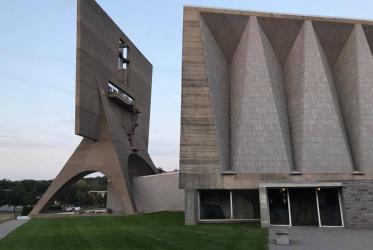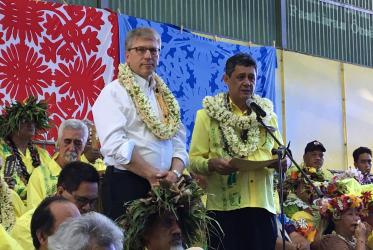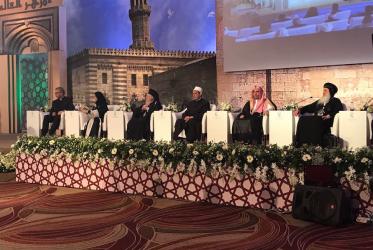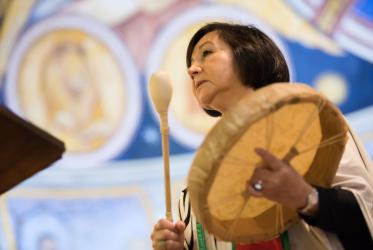Displaying 141 - 160 of 324
A Light of Peace - for the Korean Peninsula and a world free from nuclear weapons
03 - 10 December 2017
Worldwide
Forum strengthens ecumenical commitment to diakonia
12 October 2017
Guided by faith, hope and endurance
02 October 2017
Dozens of countries sign nuclear weapons ban treaty
20 September 2017
Tveit: search for unity “an urgent need today”
09 September 2017
WCC general secretary visits the Pacific region
31 July 2017
Pentecost is time to pray for unity and just peace
05 June 2017
New ACT general secretary envisions more prophetic diakonia
22 February 2017
Patriarch Matthias: “Peace is the message of every day”
10 February 2017
From Bethlehem, WCC general secretary: “Together we are stronger”
08 December 2016
Advocates urge transition to low-carbon economy, clean energy
09 November 2016











